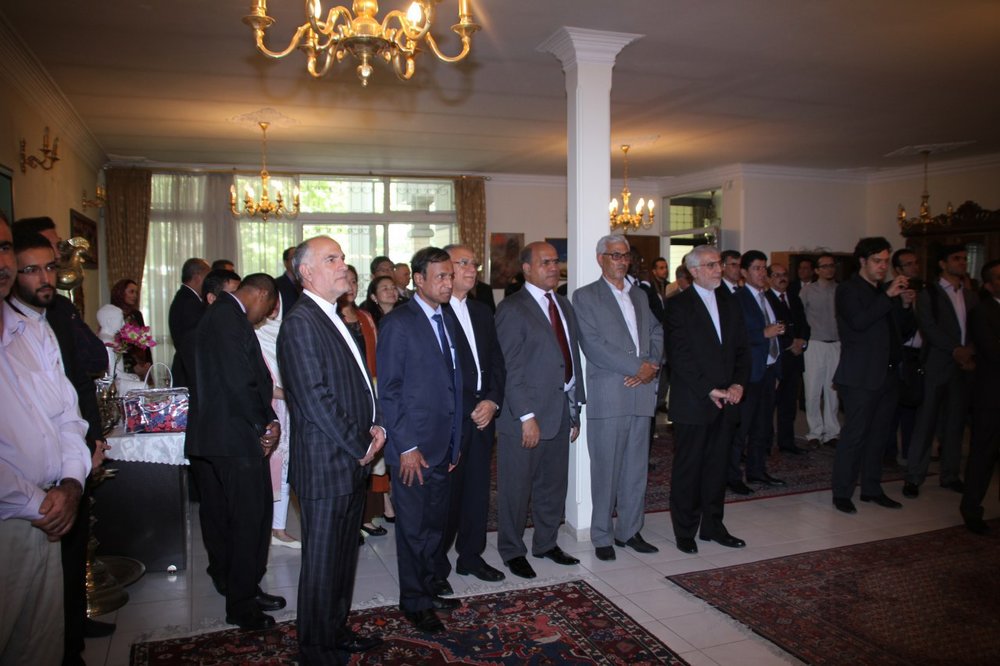Sri Lanka celebrates 150th anniversary of its tea industry in Tehran

Tehran – Along with Sri Lanka’s embassies all around the world, the Asian country’s embassy in Tehran celebrated the 150th anniversary of Ceylon tea on July 6.
Sri Lankan embassies all around the world hosted Sri Lanka’s tea industry’s anniversary with a unique global 24 hour tea party on July 6 at 5.00 PM in every time zone from east to west across the world.
In a hot afternoon in Tehran, when the clock marked 5 PM, guests were also arriving at Sri Lanka’s embassy in the capital to celebrate the 150 years of commercial Ceylon tea along with the world.
The ambassador and his wife welcomed the guests, who were mostly ambassadors of other countries in Tehran or political and official figures.
During the celebration Sri Lanka’s ambassador in Tehran Y.K.A. Rohanajith delivered a speech introducing Sri Lanka’s tea industry and expressing appreciation for the Iran’s positive support for Sri Lankan tea business in Iran.
“Sri Lanka’s tea industry began in 1867 when James Taylor, a Scotsman, planted the first crop of tea on the island. Renowned for its fine quality and distinctive taste, Ceylon Tea has been a perennial favorite with tea lovers around the world,” he said.
The ambassador mentioned Iran as the second largest Ceylon tea market after Russia, emphasizing the importance of economic relations with Iran on higher levels.
A presentation of the country’s commercial activities in the tea industry was also delivered for the guests after which everyone was invited for a cup of well-known “Ceylon Tea”, a very nice closing for a very warm ceremony.
Sri Lanka, officially the Democratic Socialist Republic of Sri Lanka, historically called Ceylon, is an island country in South Asia. Sri Lanka has maritime borders with India to the northwest and the Maldives to the southwest.
Tea production is one of the main sources of foreign exchange for Sri Lanka and accounts for two percent of the country’s gross domestic product (GDP).
The humidity, cool temperatures, and rainfall of the country's central highlands provide a climate that favors the production of high-quality tea.
EF/MA
